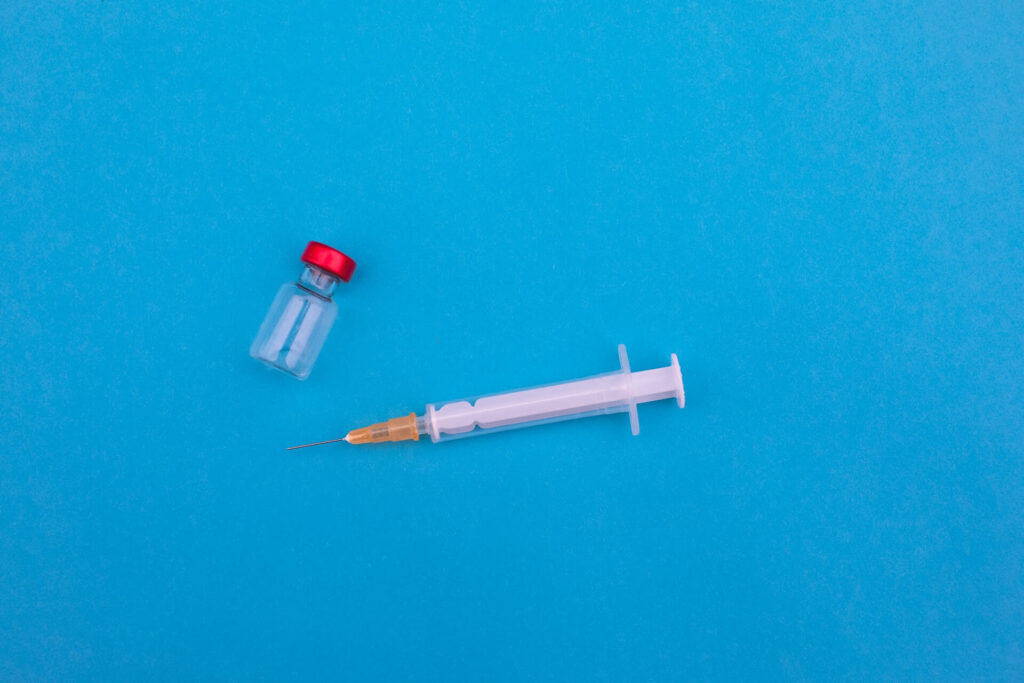Can Semaglutide Actually Help You Lose Belly Fat?
You’ve probably heard on the news and online about the results of those suffering from obesity losing body weight from using Semaglutide. Is this actually true?
Yes, semaglutide has shown promise in reducing belly fat and improving body composition in some individuals. Research and clinical trials suggest that this medication can lead to significant reductions in abdominal fat.
Semaglutide likely aids in belly fat reduction by influencing metabolism, appetite suppression, and improved insulin sensitivity. However, its effectiveness can vary from person to person, and results may not be consistent for everyone.
It’s essential to consult with a healthcare professional before considering Semaglutide for this purpose, as it may come with potential side effects and is not a standalone solution for achieving a trimmer waistline.
What is Semaglutide?

Semaglutide is a medication primarily used to treat type 2 diabetes and obesity. It belongs to a class of drugs called glucagon-like peptide-1 (GLP-1) receptor agonists. Semaglutide works by mimicking the actions of natural GLP-1 hormones in the body, which regulate blood sugar levels and appetite.
By stimulating insulin production and reducing glucose production in the liver, it helps control blood sugar. Additionally, Semaglutide promotes weight loss by increasing feelings of fullness and slowing digestion. It is typically administered as a once-weekly injection and has gained attention for its potential to aid in weight management, making it a valuable tool in diabetes and obesity treatment.
How Semaglutide Works To Reduce Belly Fat
What makes semaglutide so effective for losing body weight? People with no experience can start taking the medication and start seeing results. Let’s dive into the details.
Appetite Suppression

Semaglutide’s ability to suppress appetite plays a central role in its potential for belly fat reduction and overall body weight loss. This effect is primarily mediated through the activation of GLP-1 receptors in the brain, particularly in the hypothalamus, which is the region responsible for regulating hunger and satiety.
GLP-1 Mimicry: Semaglutide is a synthetic version of GLP-1, a hormone released by the gut in response to food intake. When Semaglutide is administered, it mimics the actions of natural GLP-1 by binding to GLP-1 receptors in the brain. This binding triggers a cascade of signals that leads to reduced appetite and increased feelings of fullness.
Reduction in Food Cravings: Semaglutide may also reduce cravings for high-calorie and unhealthy foods. This is particularly beneficial for individuals who struggle with emotional or impulsive eating. By dampening the desire for specific foods, Semaglutide can help individuals make healthier dietary choices, further contributing to weight loss and a reduction in belly fat.
Lower Caloric Intake: With a reduced appetite and increased feelings of fullness, individuals taking Semaglutide tend to naturally consume fewer calories. This caloric deficit is a fundamental aspect of weight loss and can result in a decrease in both overall body fat and specifically, belly fat.
It’s important to note that while Semaglutide’s appetite-suppressing effects are significant, they may vary from person to person. Factors such as individual biology, dosage, and lifestyle choices can influence the extent of appetite suppression experienced.
Insulin Sensitivity

Semaglutide can help you lose weight by enhancing insulin sensitivity. This refers to how effectively the body’s cells respond to insulin, a hormone responsible for regulating blood sugar levels.
When insulin sensitivity is impaired, as often seen in individuals with obesity and type 2 diabetes, the body struggles to use insulin efficiently, leading to elevated blood sugar levels and increased fat storage, particularly around the abdomen.
Enhanced Glucose Uptake: Semaglutide promotes the uptake of glucose into cells, particularly muscle cells, which use glucose for energy. This improves the body’s ability to efficiently remove sugar from the bloodstream, reducing the need for insulin and decreasing fat storage.
Reduced Liver Glucose Production: The medication inhibits excessive glucose production by the liver. In individuals with insulin resistance, the liver tends to release too much glucose into the bloodstream, contributing to elevated blood sugar levels and increased fat deposition, especially in the abdominal region. Semaglutide helps normalize this process.
Lower Insulin Levels: By improving insulin sensitivity, Semaglutide can lead to lower insulin levels in the bloodstream. High insulin levels are associated with increased fat storage, particularly visceral fat in the belly area. Lower insulin levels can contribute to the breakdown of stored fat for energy.
Metabolism

Using Semaglutide for weight loss comes with the help of improved fat matabolism. Fat metabolism refers to the processes by which the body breaks down and utilizes stored fat for energy. Semaglutide appears to influence fat metabolism in several ways:
Lipolysis Activation: Semaglutide may stimulate a process known as lipolysis, which involves the breakdown of triglycerides (the primary form of fat storage) into fatty acids and glycerol. These fatty acids can then be used as an energy source, potentially leading to a reduction in stored fat.
Liver Fat Reduction: Semaglutide has been shown to reduce fat accumulation in the liver, a condition known as non-alcoholic fatty liver disease (NAFLD). This is significant because excess fat in the liver is closely linked to abdominal obesity. By reducing liver fat, Semaglutide may indirectly contribute to a decrease in belly fat.
Adipocyte Regulation: Semaglutide may influence the activity of adipocytes (fat cells). It may promote healthier fat cell function, including a reduction in the size of fat cells. This can lead to a decrease in overall body mass, with a noticeable impact on abdominal fat stores.
We Are Here To Help
From what we understand about semaglutide treatment for obesity and excess fat, it works when implemented correctly. At Evolve Wellness and Health, we work with our patients to help them achieve their weight loss goals.
If you’ve tried to lose those extra pounds but keep coming up short, contact us about trying Semaglutide and putting together a comprehensive plan.

Ashlee is the Medical Director at Evolve Wellness and Health in Englewood, Colorado. She obtained her Master of Science in Nursing in 2006 from Colorado State University-Pueblo, and is board-certified through the American Nurses Credentialing Center as an Acute Care Nurse Practitioner. She has practiced in the field of hormone replacement therapy (both male and female) and medical weight loss since 2013.


